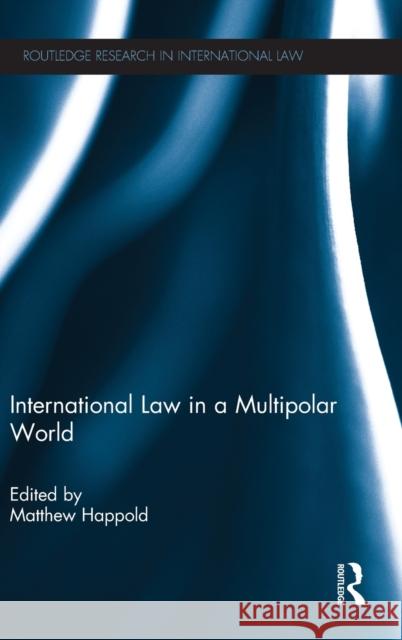International Law in a Multipolar World » książka
International Law in a Multipolar World
ISBN-13: 9780415565219 / Angielski / Twarda / 2011 / 352 str.
International Law in a Multipolar World
ISBN-13: 9780415565219 / Angielski / Twarda / 2011 / 352 str.
(netto: 746,32 VAT: 5%)
Najniższa cena z 30 dni: 730,42
ok. 22 dni roboczych.
Darmowa dostawa!
Exploring the implications of a multipolar world for the development of international law, this text explores issues including the use of force, governance, regionalism and the relevance of the UN.
Since the creation of the United Nations in 1945, international law has sought to configure itself as a universal system. And yet, despite the best efforts of international institutions, scholars and others to assert the universal application of international law, its relevance and applicability has been influenced, if not directed, by political power.
Over the past decade, discourse has tended to focus on the implications for international law of a unipolar world, characterised by US hegemony. However, that the international system may now be experiencing a tendency towards multipolarity, with various sites of power able to exert a telling influence on international relations and international law. Recent events such as Russiaâs excursion into Georgia, the breakdown of the Doha round of trade negotiations, the USAâs questionable actions in the war on terror, the prominence of emerging nuclear powers, Chinaâs assertions of its own interests on a global scale, and the rise of regional trading blocs, all pose significant questions for international law and the international legal order.
International Law in a Multipolar World features contributions from a range of contributors including Nigel White, Michael Schmitt, Richard Burchill, Alexander Orakhelashvili and Christian Pippan, addressing some of the questions that multipolarity poses for the international legal system. The contributions to the volume explore issues including the use of force, governance , sovereign equality, regionalism and the relevance of the United Nations in a multipolar world, considering the overarching theme of the relationship between power and law.











